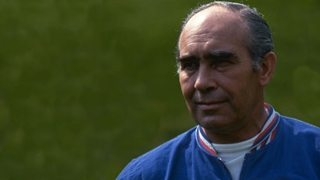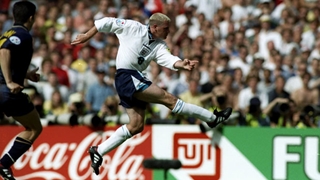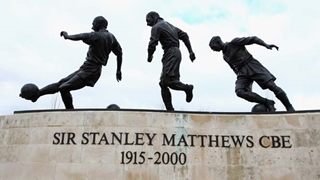
Alf (later ‘Sir Alf’) Ramsey, our World Cup-winning manager, took charge of his first England team on this day in 1963.
His predecessor, Walter (later ‘Sir Walter’) Winterbottom, had held the reins since 1946 but The FA’s International Committee had helped him to choose his England teams.
After his last match, a 4-0 win against Wales, Walter said: “Today showed that England have the material for a good side.
France 5-2 England
European Championship Qualifier
Wednesday 27 February 1963
Parc des Princes, Paris
"With the support they merit, and playing in England, we must have a great chance of winning the World Cup in 1966."
Alf Ramsey, a right-back and deep thinker about the game, had been capped 32 times for England and managed Ipswich Town to the League title in 1962.
He insisted on selecting his England teams himself and vowed that we would win the World Cup.
But he started inauspiciously with a 5-2 defeat to France in Paris’s Parc des Princes.
England were out of the European Nations Cup – it was the second leg after a 1-1 draw at Hillsborough – and it was the first time they had conceded five since 1958.
Ramsey’s first England line-up was: Ron Springett, Jimmy Armfield (captain), Ron Henry, Bobby Moore, Brian Labone, Ron Flowers, John Connelly, Bobby Tambling, Bobby Smith, Jimmy Greaves and Bobby Charlton. Seven of them would feature in his World Cup squad.
England were behind after just three minutes in Paris and a disastrous first half finished 3-0 to France.
After the break England began to turn their undoubted hard work into more tangible reward and pulled two goals back through Smith and Tambling.
At that point they were looking good for a draw but the French knocked in a couple more for a slightly flattering scoreline.
Then England lost 2-1 to Scotland at Wembley…but things definitely got better!









